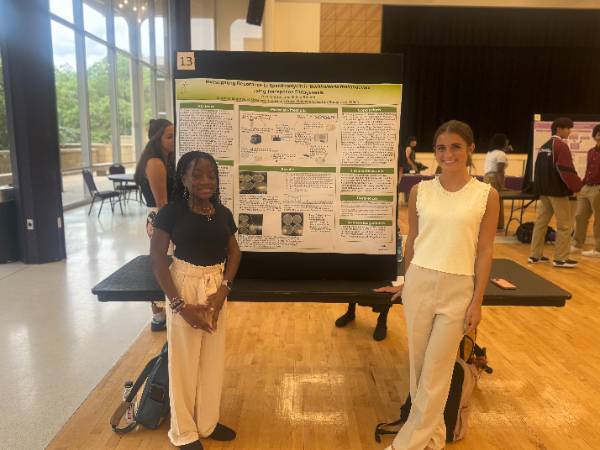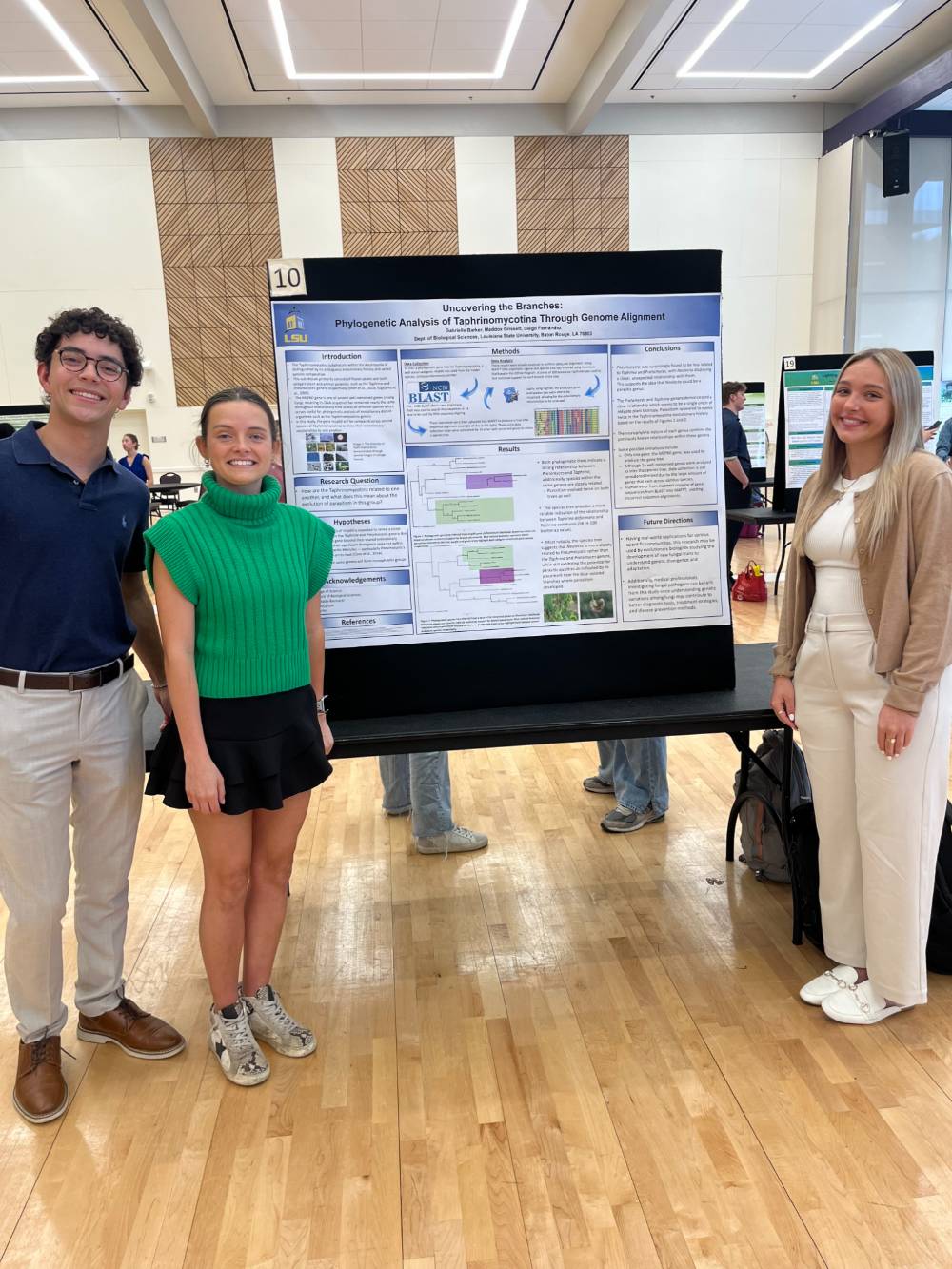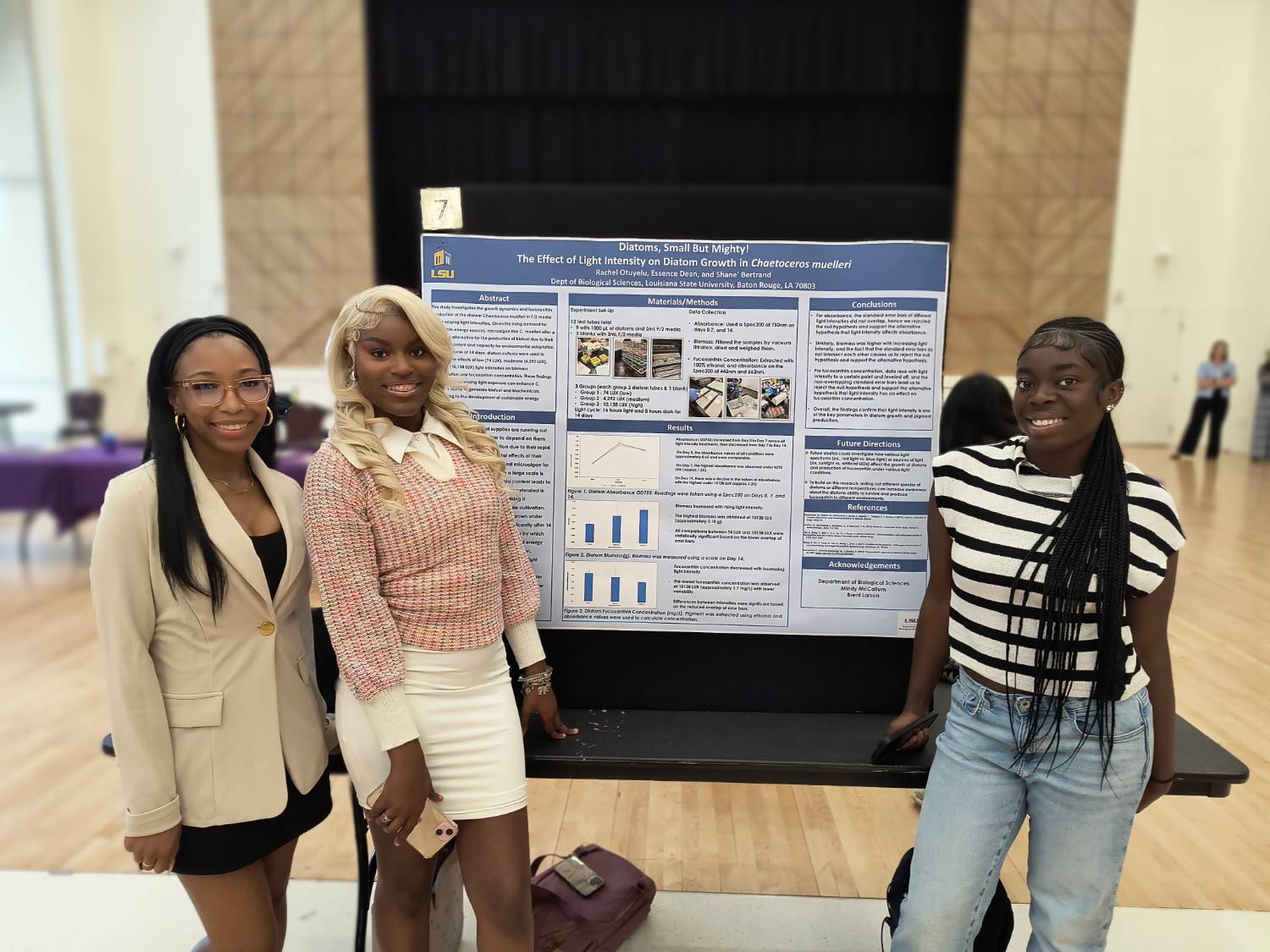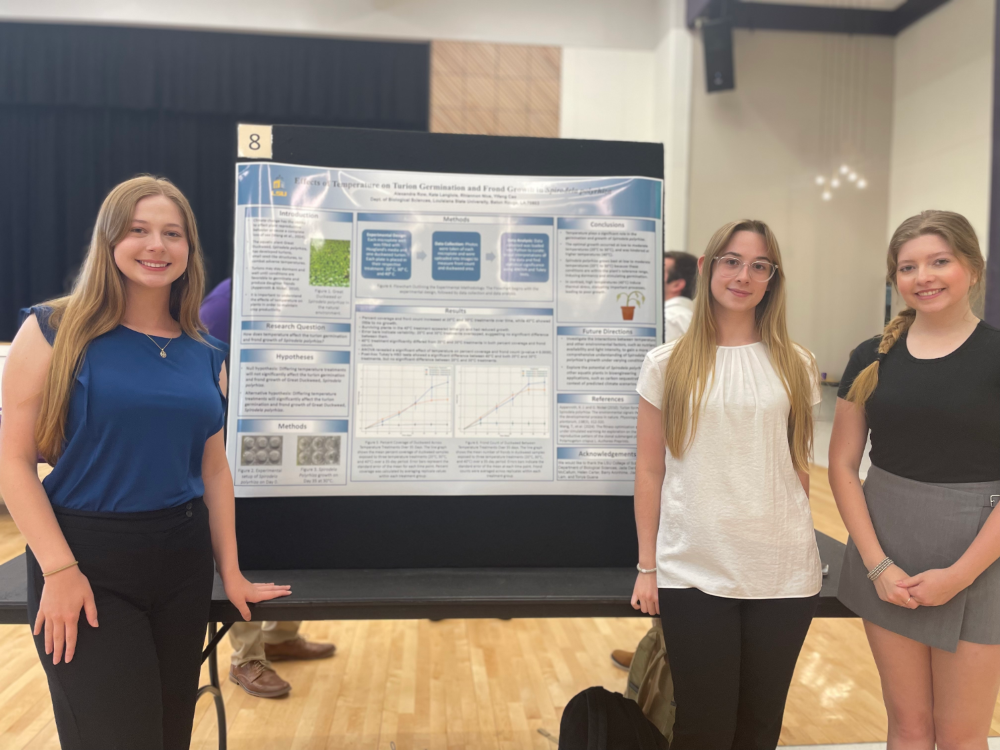LSU CURE Laboratory Courses
LSU CURE (course-based undergraduate research experiences) allows for the integration of authentic research projects into introductory biology laboratory courses. To better understand science and gain confidence in their abilities to do scientific research, CURE labs are built around a semester-long agenda to include authentic, in-house research projects. While much of the curriculum is focused on building science literacy skills, research-based labs within the agenda focus on a single research project throughout the semester. By answering questions that are unknown and relevant, student work produced within CURE labs is valuable beyond the classroom.
Current LSU CURE Projects
- An exploration into the kinetics and inhibition of the enzyme lactase. (Brent Larson & Aidan McDonald; Dr. G. Waldrop)
- Investigation of antibiotic resistance in a naturally occurring bacterium, Burkholderia thailandensis, using transposon mutagenesis. (Elaine Nkwocha; Dr. A. Grove)
- Effect of increasing temperature on turion germination and plant growth using common duckweed, Spirodela polyrhiza. (Jada Daniels; Dr. J. Tan)
- Gene expression in a visual processing region as a predictor of individual variation in novelty avoidance behavior in an invasive songbird. (Katie Stewart; Dr. C. Lattin)
- Investigation into the evolutionary history of fungal parasites in the Taphrinomycotina. (Spenser Babb-Biernacki; Drs. J. Esselstyn, V. Doyle, and J. Brown)
- Species interactions in a warming world - how increasing temperatures can alter interactions between predators and prey in salt marsh habitats. (Wissam Jawad; Dr. M. Kelly)
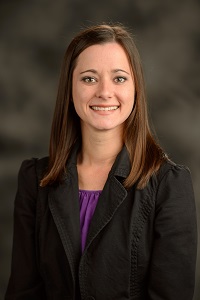
Mindy McCallum
Instructor
Biology Lab Coordinator
This semester, student projects highlighted the following research goals:
· Investigation into the evolutionary history of fungal parasites in the Taphrinomycotina. (Drs. J. Esselstyn, V. Doyle, and J. Brown; Spenser Babb-Biernacki)
· Effect of increasing temperature on turion germination and plant growth using common duckweed, Spirodela polyrhiza. (Dr. J. Tan; Yifeng Cao and Jada Daniels)
· Investigation of antibiotic resistance in a naturally occurring bacterium, Burkholderia thailandensis, using transposon mutagenesis. (Dr. A. Grove; Elaine Nkwocha)
· Growth of diatoms native to Japan and means of their economic exploitation with the aim of large-scale production in Louisiana. (Brent Larson)
The poster session for the Course-based Undergraduate Research Experience (CURE) labs was held on April 30, 2025 in the LSU Student Union. Select students from CURE lab courses presented results from their semester-long research projects while the remaining CURE students acted as judges. Projects this semester included a study of increasing temperature on turion germination and plant growth using common duckweed, Spirodela polyrhiza, how light intensity affects the growth of diatoms, an investigation into the evolutionary history of fungal parasites in the Taphrinomycotina, and antibiotic resistance in a naturally occurring bacterium, Burkholderia thailandensis, using transposon mutagenesis.
Over 250 introductory biology students participated in CURE labs this semester. This opportunity affords a diverse group of students the opportunity to participate in undergraduate research within the framework of a course and under the guidance of enthusiastic graduate students.
Top Presenters 2025
